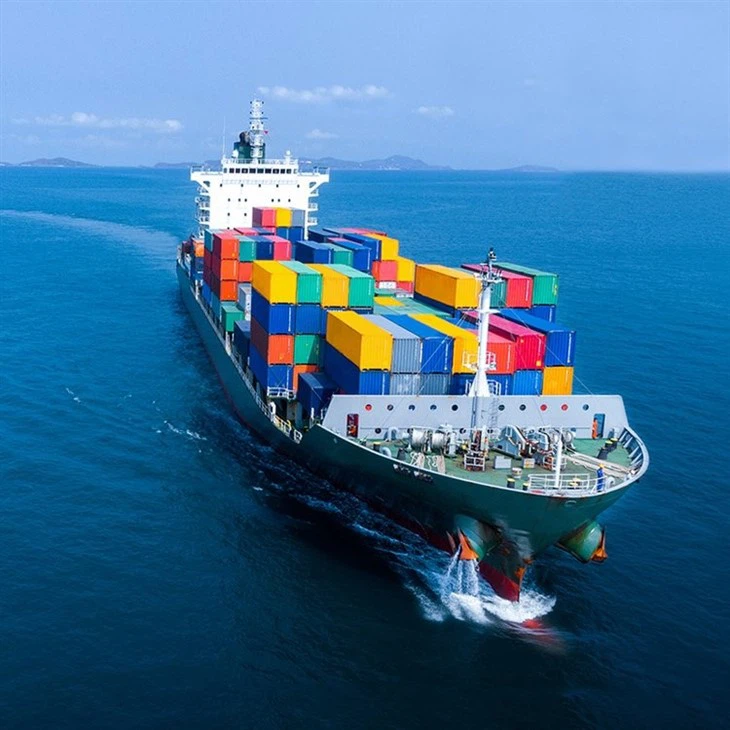- By TOP CHINA FREIGHT
- September 8, 2025
- Sea Freight, Shipping
Table of Contents
For businesses, cheap sea shipping from China offers an excellent balance between affordability and efficiency. However, many importers face challenges such as variable shipping costs, customs paperwork, and long transit times.This guide provides detailed insights into sea freight options, costs, timelines, and strategies to maximize savings without sacrificing reliability.

Why choose sea freight for shipping from China?
Sea freight is the backbone of global trade and far cheaper than air freight, especially for bulk or heavy goods. With flexible container sizes (20ft or 40ft) and optimized routes, it offers predictable schedules and tracking. Although slower, businesses that plan ahead benefit from stable supply chains and lower per-unit costs, making cheap sea shipping from China the smart choice for cost-focused companies.
How much does cheap sea shipping from China cost?
Shipping costs depend on multiple factors such as container size, shipping route, and incoterms. Full Container Load (FCL) is economical for large volumes, while Less than Container Load (LCL) is suitable for smaller shipments.
| Shipping Option | Average Cost (USD) | Best For | Pros | Cons |
|---|---|---|---|---|
| FCL 20ft | $1,500 – $2,800 | Large cargo up to 28 CBM | Fixed rate, secure | May not be filled completely |
| FCL 40ft | $2,500 – $4,500 | Bulk shipments up to 58 CBM | Best value per unit | Higher upfront cost |
| LCL | $80 – $120 per CBM | Small to medium loads | Pay for space used | Longer handling & delays |
Costs fluctuate based on fuel surcharges, port fees, and seasonal demand. Importers should also account for customs clearance and inland transportation when budgeting.
What are the transit times for sea shipping from China?
Transit times vary depending on the destination. West Coast US ports are faster than East Coast arrivals, while Europe and Africa involve longer routes.
| Destination | Transit Time (Days) | Notes |
|---|---|---|
| West Coast USA | 15 – 20 | Los Angeles, Long Beach |
| East Coast USA | 28 – 35 | Via Panama Canal |
| Europe (Rotterdam) | 30 – 40 | Main European hub |
| Middle East (Dubai) | 18 – 25 | Direct shipping lanes |
| Africa (Lagos) | 35 – 45 | May include transshipment |
Planning shipments in advance ensures goods arrive on schedule. Businesses often order 2–3 months ahead to cover production and transit lead times.
Which factors influence sea freight rates from China?
Several factors determine shipping rates, including:
1.Fuel prices (BAF surcharges)
Rising oil costs impact freight prices.
2.Seasonal demand
Peak shipping seasons before holidays cause higher rates.
3.Port congestion
Busy terminals can lead to delays and extra fees.
4.Container availability
Imbalances sometimes drive up costs.
5.Customs regulations
Tariffs and duties add to total expenses.
Therefore, working with an experienced forwarder helps navigate fluctuations and secure more stable pricing for cheap sea shipping from China.
How to save money on sea freight from China?
Securing slots in advance helps avoid peak season surcharges
Reducing wasted space lowers LCL costs
EXW vs FOB can shift responsibility and cost
Alternative ports may provide cheaper handling
Experts negotiate better rates and consolidate shipments
FCL vs LCL: Which option is better for cheap sea shipping?

Both FCL and LCL serve different business needs.
| Method | Best Suited For | Advantages | Disadvantages |
|---|---|---|---|
| FCL | Large, high-volume importers | Cheaper per unit, faster handling | Higher upfront cost |
| LCL | Small to medium importers | Flexible, pay for used space | Longer transit, higher per CBM rate |
Businesses shipping more than 15 CBM often find FCL more economical. Meanwhile, startups importing smaller volumes benefit from LCL despite slightly higher costs.
What documents are required for sea shipping from China?

| Document | Purpose |
|---|---|
| Bill of Lading (B/L) | Proof of shipment and ownership |
| Commercial Invoice | Declares value of goods |
| Packing List | Provides cargo details |
| Certificate of Origin | Verifies where goods are produced |
| Import/Export Licenses | Required for restricted items |
Moreover, digital submission is becoming more common, reducing paperwork delays. Importers should double-check requirements for each destination country.
Case Study: Reducing shipping costs with consolidation

A medium-sized electronics retailer in Europe previously used air freight for urgent shipments. However, high costs were eroding margins. By switching to cheap sea shipping from China and consolidating orders into 40ft containers, the company reduced transport expenses by 45%.
Additionally, better forecasting allowed them to align production schedules with shipping lead times. Although transit was longer, improved planning ensured goods arrived before seasonal sales periods. This case shows how businesses can balance cost and delivery schedules effectively.
What are the pros and cons of sea freight compared to air?
| Factor | Sea Freight | Air Freight |
|---|---|---|
| Cost | Lowest for bulk goods | Most expensive |
| Speed | 15–45 days | 1–7 days |
| Capacity | Large volumes, oversized cargo | Limited weight & size |
| Environmental Impact | Lower emissions per unit | Higher carbon footprint |
| Reliability | Potential port delays | More predictable |
Therefore, sea freight is ideal for cost-sensitive shipments, while air freight works best for time-critical deliveries. Some businesses even adopt hybrid strategies, splitting goods between sea and air depending on urgency.
Should small businesses use cheap sea shipping from China?
Yes, small businesses can also benefit from sea freight by using LCL services. This allows them to share container space, reducing expenses compared to air cargo. Additionally, freight forwarders provide value-added services such as customs clearance, warehousing, and door-to-door delivery, making logistics more manageable for smaller companies.
Although transit times are longer, proper inventory planning ensures products arrive without affecting sales. For e-commerce brands, combining sea shipping for bulk stock replenishment with occasional air freight for urgent items is a practical solution.
Conclusion
Cheap sea shipping from China offers businesses of all sizes an affordable and reliable way to move goods worldwide. While transit times are longer than air freight, the significant cost savings make it an essential part of global supply chains. Importers can further reduce expenses by optimizing packaging, booking early, and working with experienced freight forwarders. Ultimately, sea freight enables companies to strike the right balance between cost, capacity, and reliability in international trade.
Need a Shipping Quote?
If you want expert guidance and peace of mind, our team is ready to assist.
TJ China Freight offers tailored solutions to help businesses of all sizes ship more reliably from China.

FAQs
Q1:Can sea freight from China include door-to-door delivery?
Yes, many freight forwarders offer door-to-door solutions. This includes pickup at the factory, shipping, customs clearance, and final delivery to your warehouse.
Q2:How do I calculate the total shipping cost from China?
The total includes ocean freight, port handling fees, customs duties, and inland transport. Importers should also consider insurance to protect goods in transit.
Q3:Can a freight forwarder help reduce costs?
Yes. Forwarders consolidate shipments, negotiate rates, handle documentation, and provide tracking, saving both time and money.
Q4:Is sea freight safe for fragile items?
Yes, if packaged correctly. Strong cartons, pallets, and proper cushioning are essential. Using FCL is safer for fragile items since containers are sealed at origin.
Q5:How often do shipping rates change?
Rates can change weekly depending on demand, fuel prices, and port conditions. Staying updated with your forwarder ensures you secure the most competitive rates.
